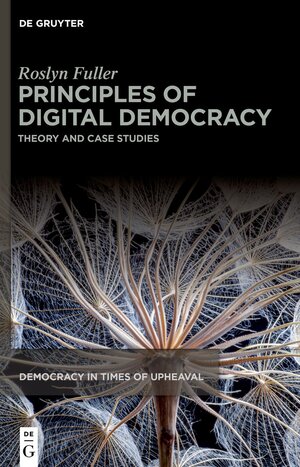
Drawing on almost a decade of first-hand experience, Principles of Digital Democracy presents a unique look at digital democracy tools in action. Whether it is carbon budgeting in Canada, voting on legislation in Italy or policy consultation in Taiwan, this book explains not just what is possible to achieve with digital democracy tools today, but how to assess the life-cycle of civic engagement, as well as different approaches to security and policy implementation.
Principles of Digital Democracy combines theory with practice, giving the reader an overarching theory of the components (Bestandteile) of digital democracy (e. g. ideation, deliberation, decision-making), as well as numerous case studies from around the world. Interviews with organizers and participants provide further insight into who participates in digital democracy and why they do so.





